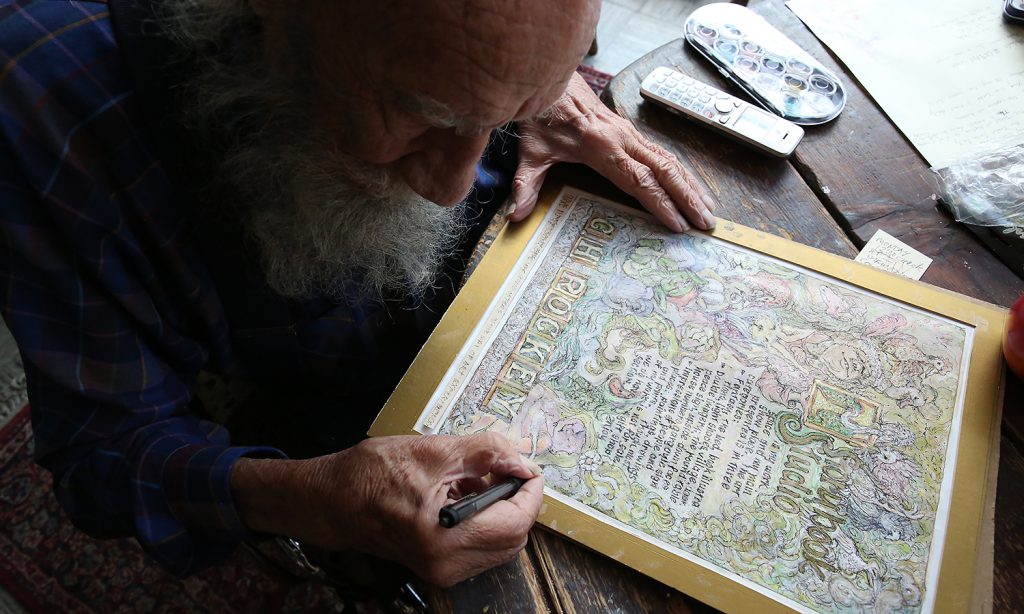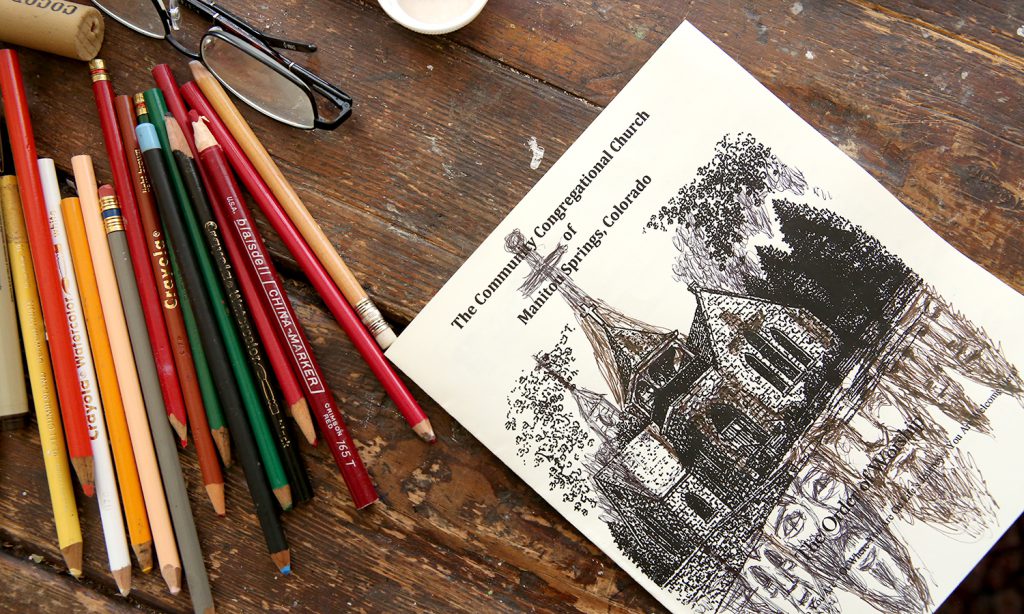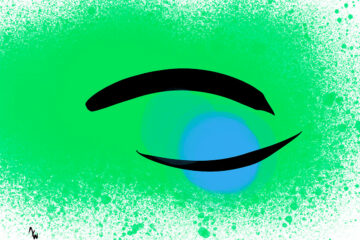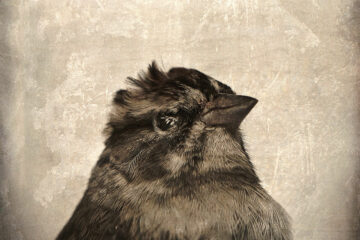When I asked Rockey, several months ago, about a sharing a series of his insights on life, art and Manitou Springs, he liked the idea. He is a man of messages, with love at the center, and giving.
“I don’t mind sharing,” Rockey said. “In fact, that’s one of my obligations in life now, I feel, to share what I’ve got. I call it a contribution.
“Everybody has their contribution in life. For me, it’s a matter of how to get more out of life, how to really become a complete individual in ways you’re supposed to be.”
In previous posts, Rockey, 85, has shared his insights on Love and Being Present, Teaching Art, Passion and Creativity. He has talked about his Illustrations, Tolkien and Sharing Gifts, and he has shared his love for Manitou.
In this edition of “Words with Rockey,” the artist tells of defying his father to be an artist and one idea he has for solving the art-money balancing act that has bothered him throughout his life.
Humanitou: You’ve told me you have 30 or 40 years’ of your artwork hanging around you here now. How long would you say you’ve been an artist?
Rockey: When I was a kid, I’d sketch and draw. My father (Charles Harry Rockey, Sr.) would be almost incensed. He’d say, “When you grow up, you’ve got to get a real job, boy. None of this patsy playing around stuff.” He was a naval officer, so he wanted me to join the Navy and be an officer like he was.
Of course, I wasn’t suited for it. I joined the Marines just to show him, “Hey, I’m a man. I can handle it. It’s just my concept of the purpose of my life is not to be a naval officer.” He never could come to that realization.
They kicked me out of the Marines because my knees went bad. You know, you’ve got to be physically in perfect shape to be a Marine.
I wanted to go to art school and continue in my art in a more adult way. He wouldn’t go for that. Finally, after the Marines I said, “I’m going to go to art school. The military is not for me.” He says, “Well, I’m not going to help you in any way.”
I went through five years at the Art Institute in Chicago, working to live in Chicago, to have an apartment and go to school, and pay for that. Five years. But I did it without him sending me a penny.
Humanitou: You don’t sell your paintings anymore, but you have an idea of a paintings library, and how to take money out of the equation.
Rockey: Without any money, you can come in and check them out. Hang it at home and enjoy it, then bring it back so somebody else can hang it up and enjoy it. That’s what art is about, not about how many paintings can I own and how much money do I have to spend to buy these paintings?
I’d much rather have it where it’s like borrowing a book. You can read and enjoy it, and give it back when you’re through reading it. Let somebody else have it.
I think that’s the solution to my dilemma about money and art, and wanting people to see it and enjoy it.
We are so lucky. We are some of the most fortunate people in the world. Well, we’re big-time money as a country. That’s why I’m definitely not a Republican anymore. I’m totally Democratic now, because life is not to make money.
Of course, you’ve got to make money to support your family, and buy food and clothing for them, but it can be done in such a way that it’s enjoyable to make the money, where you can appreciate the chance that you’re able to share with other people.
I think about 80 percent of the people in the country are missing out on what life has for them. We’re so lucky as a nation, a country, to have the advantages we have that a lot of countries don’t.
Big business, I feel sorry for them, I really do. They say, “How can you live? You’ve got to have money.” The more money you make, the more you think you can buy. That’s just not it at all. I’d like to get that message across to everybody.
Somehow, we used a lot of our things that were really gifts to us and we’re changing it into, “How much more money can I make, if I do it this way and that way?”
Money can be very evil. Like that old saying, Money is the root of all evil. I heard that as a kid. I thought, “What does that mean?” Boy, did I find out.
And I had some pretty scuddy jobs but, hey, I was helping somebody out. Why not? I didn’t mind hard work. Worked my whole life but, in a way that was beneficial to me, I’ve learned so much more than how to make money, like “How can I get more than just the money out of this experience?” And It’s out there for anybody.
Humanitou: It’s a culture that is so steeped in making money, making more. It surrounds us, and becomes hard to step outside of that flow to question it.
Rockey: Absolutely. And I’m not sure how all that came about. It’s kind of obvious, I guess, that if you’ve got money you can buy things that you couldn’t buy without the money. But it gets to a point where you buy, some people buy art, because, “Hey, I’ve got a Rockey painting in my house,” rather than just enjoying the painting. It’s because they own something.
It’s a shame. We’ve been taught in school, I guess, you can make more money if you do this, that or the other thing. It’s a shame. People are missing it. For us, it’s almost an embarrassment we are so ignorant as to what is life all about.




